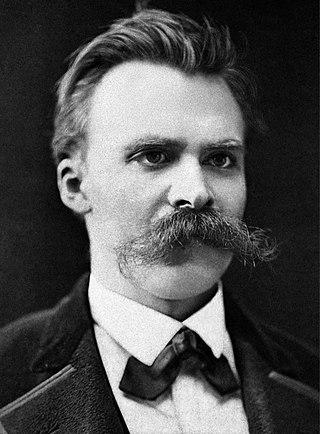A Europhile is a person who is fond of, admires, or loves European culture, society, history, food, music etc. [1] [2] In its narrower, and often pejorative sense, the term europhile is most often used in Europe itself in a political context, that is, in the context of an uncritical attitude towards the European Union. It refers to organizations and individuals with explicitly unquestioning pro-European attitudes, as opposed to Eurosceptics and Europhobes.

Cultural imperialism comprises the cultural dimensions of imperialism. The word "imperialism" describes practices in which a country engages culture to create and maintain unequal social and economic relationships among social groups. Cultural imperialism often uses wealth, media power and violence to implement the system of cultural hegemony that legitimizes imperialism.
Racism is discrimination and prejudice against people based on their race or ethnicity. Racism can be present in social actions, practices, or political systems that support the expression of prejudice or aversion in discriminatory practices. The ideology underlying racist practices often assumes that humans can be subdivided into distinct groups that are different in their social behavior and innate capacities and that can be ranked as inferior or superior. Racist ideology can become manifest in many aspects of social life. Associated social actions may include nativism, xenophobia, otherness, segregation, hierarchical ranking, supremacism, and related social phenomena. Racism refers to violation of racial equality based on equal opportunities or based on equality of outcomes for different races or ethnicities, also called substantive equality.

Philosemitism, also called Judeophilia, is "defense, love, or admiration of Jews and Judaism". Such attitudes can be found in Western cultures across the centuries. The term originated in the nineteenth century by self-described German antisemites to describe their non-Jewish opponents. American-Jewish historian Daniel Cohen of the Vienna Wiesenthal Institute for Holocaust Studies has asserted that philosemitism "can indeed easily recycle antisemitic themes, recreate Jewish otherness, or strategically compensate for Holocaust guilt."
An intimate part, personal part or private part is a place on the human body which is customarily kept covered by clothing in public venues and conventional settings, as a matter of fashion and cultural norms. In several cultures, revealing these parts is seen as a religious offense.
Acculturation is a process of social, psychological, and cultural change that stems from the balancing of two cultures while adapting to the prevailing culture of the society. Acculturation is a process in which an individual adopts, acquires and adjusts to a new cultural environment as a result of being placed into a new culture, or when another culture is brought to someone. Individuals of a differing culture try to incorporate themselves into the new more prevalent culture by participating in aspects of the more prevalent culture, such as their traditions, but still hold onto their original cultural values and traditions. The effects of acculturation can be seen at multiple levels in both the devotee of the prevailing culture and those who are assimilating into the culture.
Heterosexism is a system of attitudes, bias, and discrimination in favor of heterosexuality and heterosexual relationships. According to Elizabeth Cramer, it can include the belief that all people are or should be heterosexual and that heterosexual relationships are the only norm and therefore superior.

Premarital sex is sexual activity which is practiced by people before they are married. Premarital sex is considered a sin by a number of religions and also considered a moral issue which is taboo in many cultures. Since the Sexual Revolution of the 1960s, it has become accepted by certain liberal movements, especially in Western countries. A 2014 Pew study on global morality found that premarital sex was considered particularly unacceptable in "Muslim Majority Countries", such as Malaysia, Jordan and Pakistan, each having over 90% disapproval, while people in Western European countries were the most accepting, with Spain, Germany, and France expressing less than 10% disapproval.
Westernization, also Europeanisation or occidentalization, is a process whereby societies come under or adopt what is considered to be Western culture, in areas such as industry, technology, science, education, politics, economics, lifestyle, law, norms, mores, customs, traditions, values, mentality, perceptions, diet, clothing, language, writing system, religion, and philosophy. During colonialism it often involved the spread of Christianity.

Nonverbal communication (NVC) is the transmission of messages or signals through a nonverbal platform such as eye contact (oculesics), body language (kinesics), social distance (proxemics), touch (haptics), voice (paralanguage), physical environments/appearance, and use of objects. When communicating, we utilize nonverbal channels as means to convey different messages or signals, whereas others can interpret these message. The study of nonverbal communication started in 1872 with the publication of The Expression of the Emotions in Man and Animals by Charles Darwin. Darwin began to study nonverbal communication as he noticed the interactions between animals such as lions, tigers, dogs etc. and realized they also communicated by gestures and expressions. For the first time, nonverbal communication was studied and its relevance questioned. Today, scholars argue that nonverbal communication can convey more meaning than verbal communication.

Indoctrination is the process of inculcating a person with ideas, attitudes, cognitive strategies or professional methodologies. Broadly speaking, indoctrination can refer to a general process of socialization. In common discourse, the term often has a pejorative valence to refer to forms of brainwashing or for disagreeable forms of socialization.
European values are the norms and values that Europeans are said to have in common, and which transcend national or state identity. In addition to helping promote European integration, this doctrine also provides the basis for analyses that characterise European politics, economics, and society as reflecting a shared identity; it is often associated with value of human rights, liberal democracy, and rule of law.

Russophilia is admiration and fondness of Russia, Russian history, and Russian culture. The antonym is Russophobia. In the 19th century, Russophilia was often linked to variants of pan-Slavism, since the Russian Empire and autonomous Serbia were the only two Slavic sovereign states during and after the Springtime of Nations.
Sexual ethics is a branch of philosophy that considers the ethics or morality of sexual behavior. Sexual ethics seeks to understand, evaluate and critique interpersonal relationships and sexual activities from social, cultural, and philosophical perspectives. Some people consider aspects of human sexuality, such as gender identification and sexual orientation, as well as consent, sexual relations and procreation, as giving rise to issues of sexual ethics.

Friedrich Nietzsche (1844–1900) developed his philosophy during the late 19th century. He owed the awakening of his philosophical interest to reading Arthur Schopenhauer's Die Welt als Wille und Vorstellung and said that Schopenhauer was one of the few thinkers that he respected, dedicating to him his essay Schopenhauer als Erzieher, published in 1874 as one of his Untimely Meditations.

Situational sexual behavior is a type of sexual behavior which differs from that which the person normally exhibits, due to a social environment that in some way permits, encourages, or compels the behavior in question. This can include situations where a person's preferred sexual behavior may not be possible, so rather than refraining from sexual activity completely, they may engage in substitute sexual behaviors.
The Greek root -phil- originates from the Greek word meaning "love". For example, philosophy is the study of human customs and the significance of life. One of the most common uses of the root -phil- is with philias.

Nudity is the state of being in which a human is without clothing. While estimates vary, for the first 90,000 years of pre-history, anatomically modern humans were naked, having lost their body hair and living in hospitable climates. As humans became behaviorally modern, body adornments such as jewelry, tattoos, body paint and scarification became part of non-verbal communications, indicating a person's social and individual characteristics. Indigenous peoples in warm climates used clothing for decorative, symbolic or ceremonial purposes but were often nude, having neither the need to protect the body from the elements nor any conception of nakedness being shameful. In many societies, both ancient and contemporary, children might be naked until the beginning of puberty. Women may not cover their breasts, being associated with nursing babies more than with sexuality.

The Eastern world, also known as the East or historically the Orient, is an umbrella term for various cultures or social structures, nations and philosophical systems, which vary depending on the context. It most often includes Asia, the Mediterranean region and the Arab world, specifically in historical (pre-modern) contexts, and in modern times in the context of Orientalism. The Eastern world is often seen as a counterpart to the Western world.
Coolness, or being cool, is an aesthetic of attitude, behavior, comportment, appearance, and style that is generally admired. Because of the varied and changing interpretation of what is considered cool, as well as its subjective nature, the word has no single meaning. For most, coolness is associated with exemplifying composure and self-control. When used in conversation, it is often as an expression of admiration or approval, and can be used when referencing both people and items of interest. Although commonly regarded as slang, cool is widely used among disparate social groups and has endured in usage for generations.
Evidence for the presence of Jewish communities in the geographical area today covered by Austria can be traced back to the 12th century. In 1848 Jews were granted civil rights and the right to establish an autonomous religious community, but full citizenship rights were given only in 1867. In an atmosphere of economic, religious and social freedom, the Jewish population grew from 6,000 in 1860 to almost 185,000 in 1938. In March 1938, Austria was annexed by Nazi Germany and thousands of Austrians and Austrian Jews who opposed Nazi rule were sent to concentration camps. Of the 65,000 Viennese Jews deported to concentration camps, only about 2,000 survived, while around 800 survived World War II in hiding.